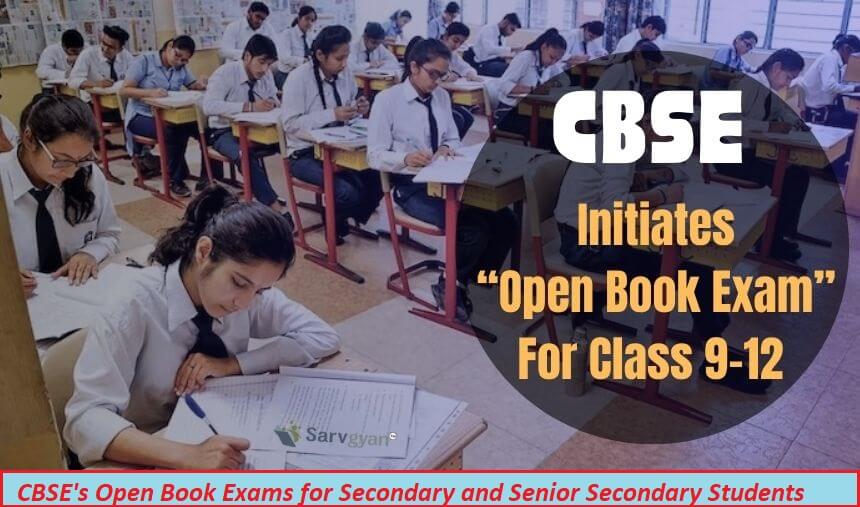Central Board of Secondary Education (CBSE), as part of their efforts in line with National Education Policy 2020 (NEP 2020), plans on rolling out Open Book Exam (OBE) systems for both secondary (9th – 11th) and senior secondary (12th) students enrolled at both government- and privately run schools affiliated with CBSE. This innovative method gives them access to their study materials during exams for improved learning experiences and evaluation.
CBSE Open Book Exam System
Students taking exams using an OBE system have the freedom of bringing study materials directly into the examination hall, providing them with more chances to use any books, notes, or relevant material they might need during testing – not only relieving exam pressure but enabling better comprehension and answering of exam questions related to study materials themselves – this practice aligns with NEP 2020 which emphasizes practical evaluation approaches over more theoretical ones.
Preparations for Implementation
CBSE is preparing to adopt Open Book Exam mode as its exam system in its upcoming annual exams, according to media reports. A proposal has already been sent forward regarding testing 9th through 12th grade students through this medium during the COVID-19 pandemic; several schools experimented with this approach during the COVID-19 pandemic, such as Delhi University, which ran its exams using OBE mode for its exams.
NEP 2020 Influence
Implementing Open Book Exams was guided by provisions found within the National Education Policy 2020 (NEP 20). NEP 20 calls for a curriculum framework that permits 9th-12th graders to bring books or study materials during exams for more holistic learning experiences.
Variations in Implementation
Several schools affiliated with CBSE have been directed to use the OBE system for conducting separate subject exams, emphasizing creating an evaluation process tailored specifically for different academic subjects and their academic requirements. This tailored evaluation approach meets educational demands by offering customized evaluation processes aligning with student needs across subject matter areas.
Conclusion
CBSE’s implementation of an Open Book Exam system represents a progressive step toward providing more student-centered and holistic evaluation processes. This method will accommodate changing dynamics within education and enable students to apply their knowledge during examinations effectively – it will be fascinating to observe its effect on the learning and evaluation landscape.
Also Read:
- CBSE Subject Codes for Class 12 2024 Exam
- CBSE Class 10 Exam 2024: Crucial Guidelines
- UP Board Exams 2024: QR Codes, Shifts, and Enhanced Security Measures
- NCERT Solutions for Class 10 Punjabi Sahitik Kirna PDF
- NCERT Class 10 Books Price List 2024
Homepage |
Click Here |
Official Website |
Click Here |
Join Whatsapp |
Click Here |
